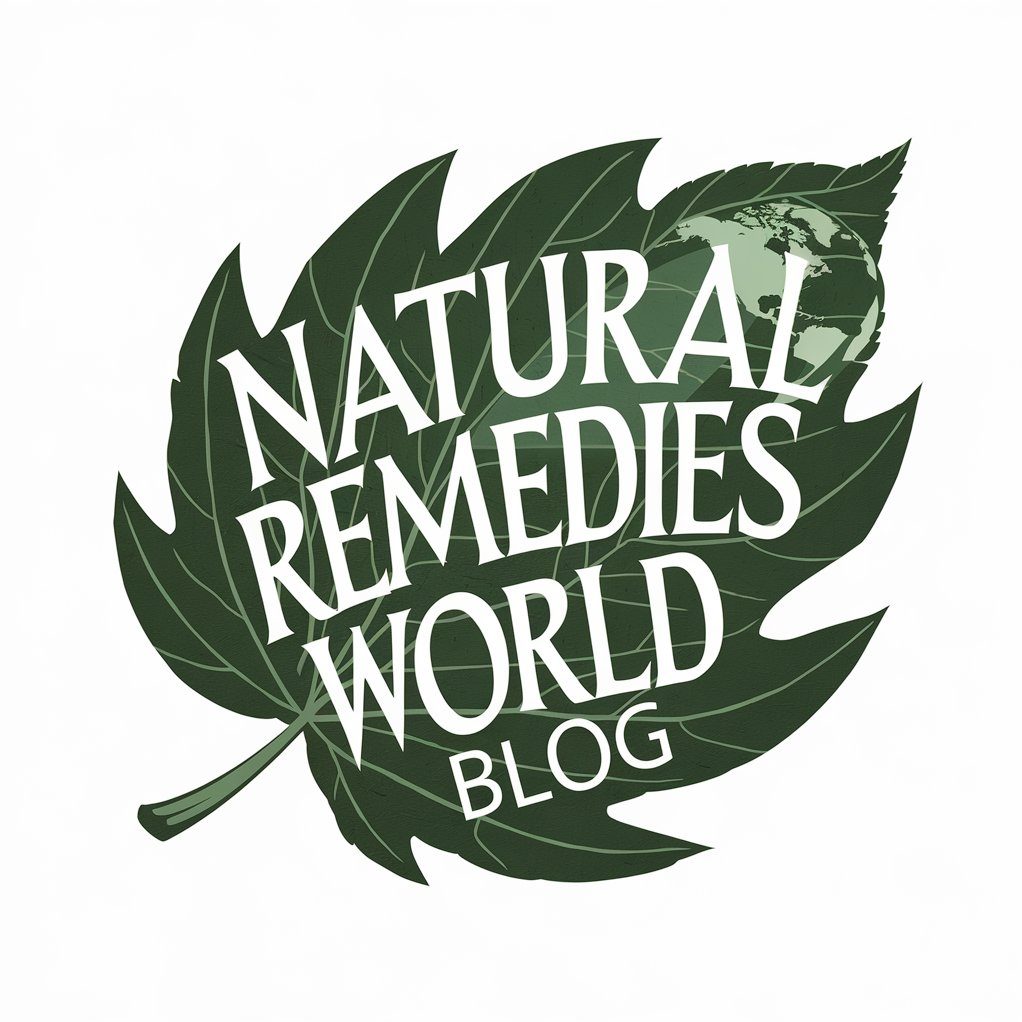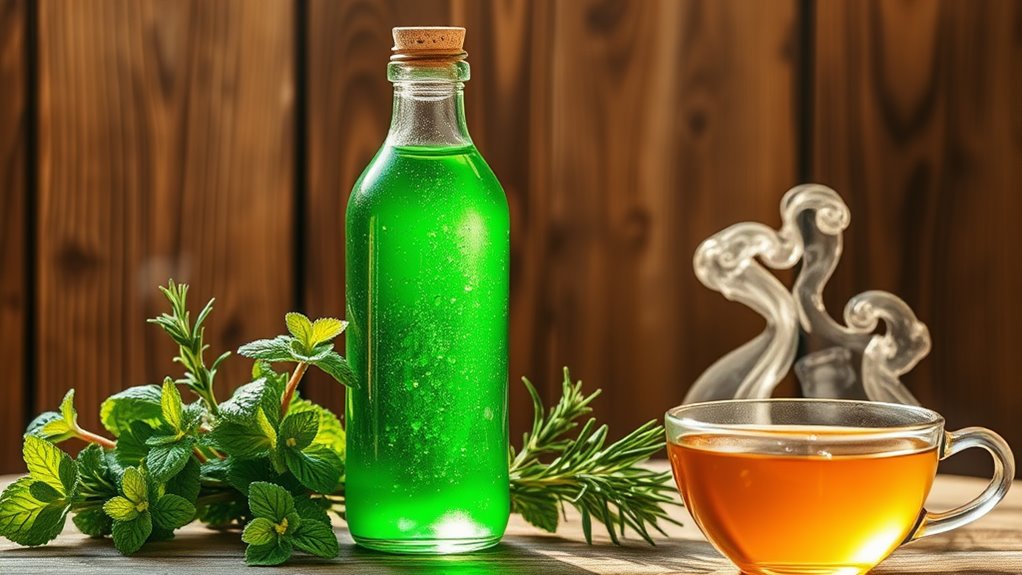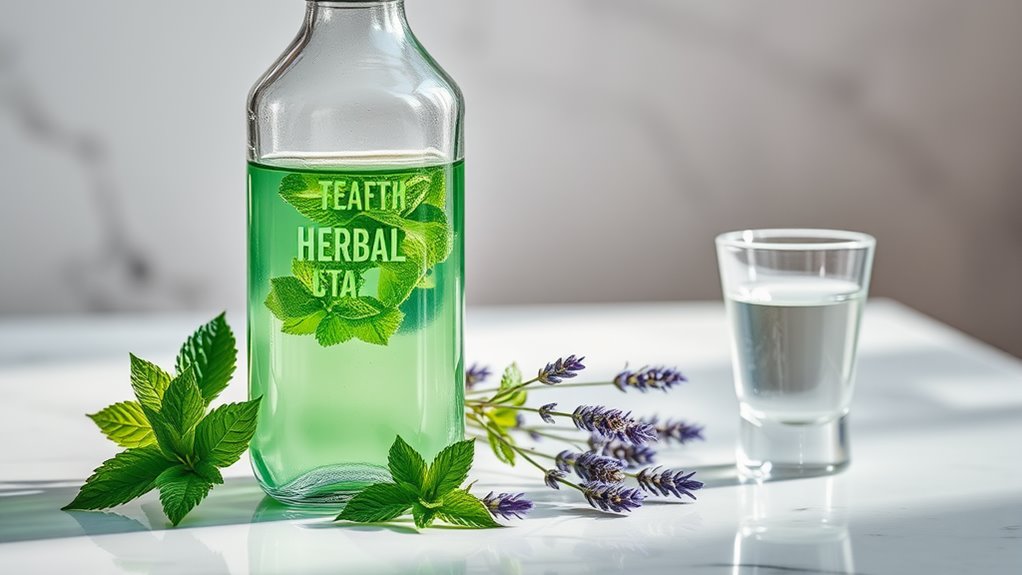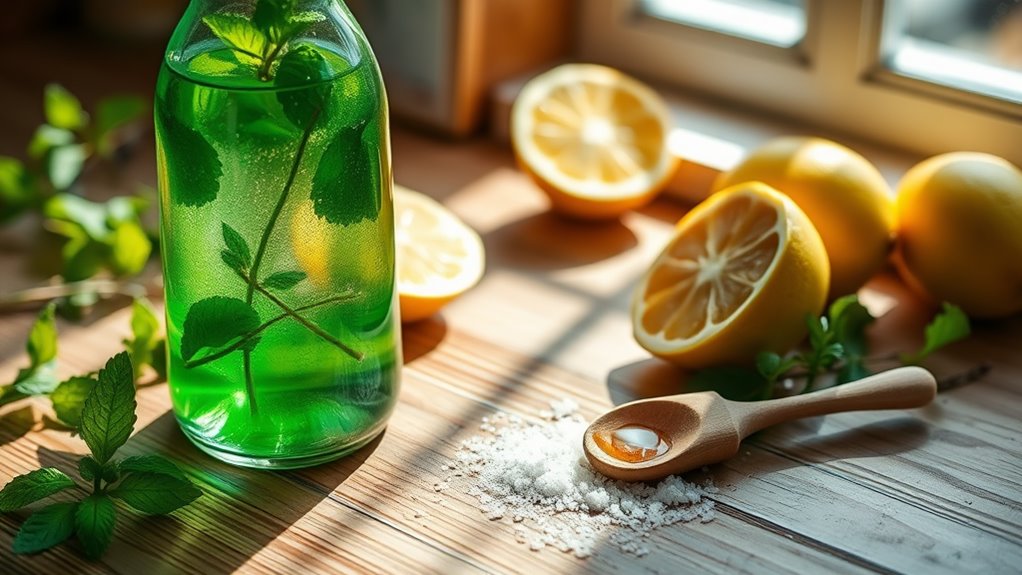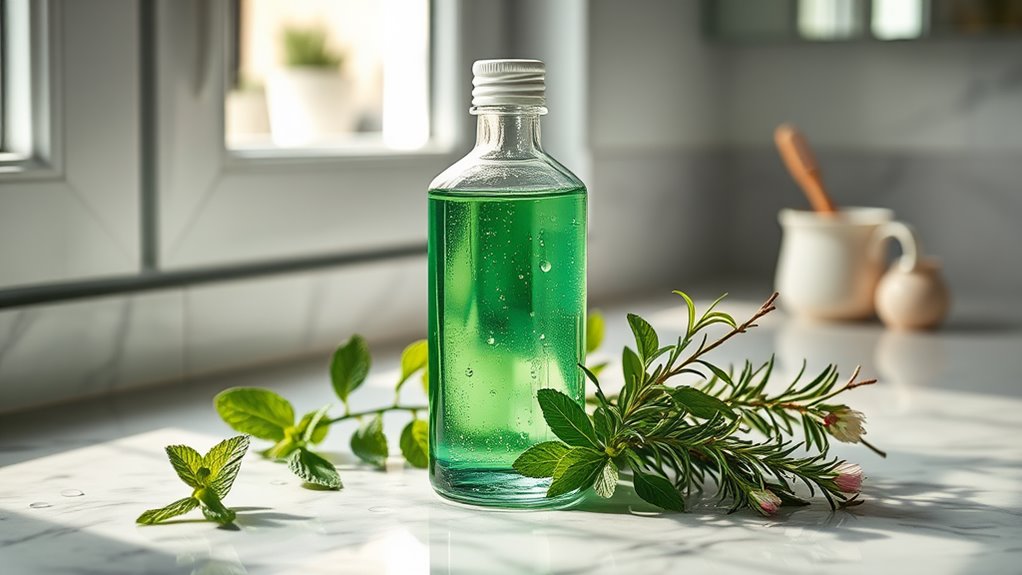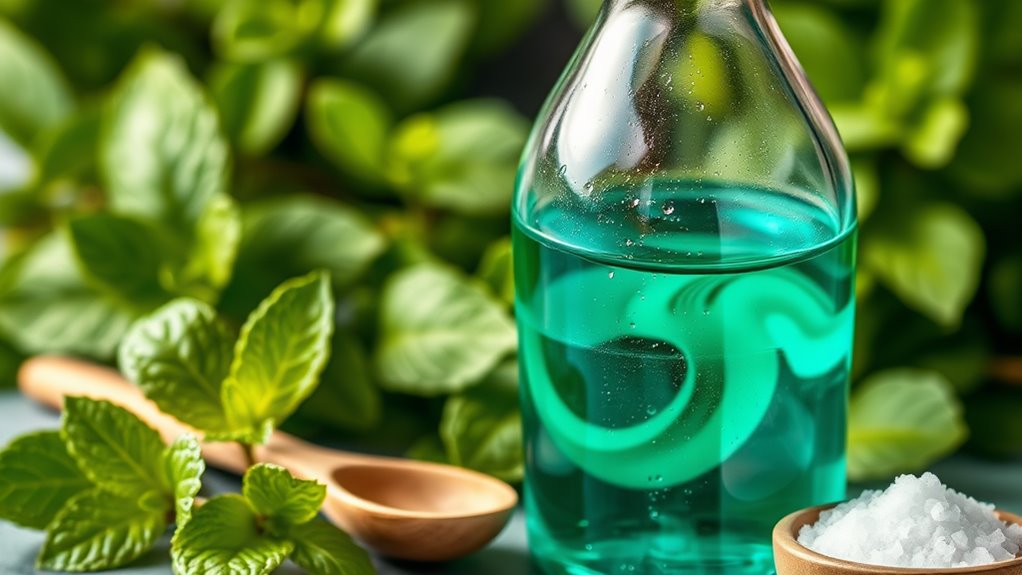DIY Herbal Mouthwash That Keeps Your Breath Fresh All Day!
Making a DIY herbal mouthwash is easy and keeps your breath fresh all day! Start with 1 cup of distilled water, add 1 tablespoon of baking soda, and mix in 5-10 drops of your favorite essential oil, like peppermint or tea tree. Shake it well, let it sit for a few hours, and store it in a cool, dark place. Using natural ingredients not only freshens breath but also promotes oral health. Discover more tips and recipes to enhance your mouthwash!
Benefits of Herbal Mouthwash
When you choose herbal mouthwash, you’re not just freshening your breath; you’re also reaping numerous health benefits.
Herbal mouthwashes can help reduce plaque buildup and fight harmful bacteria, promoting better oral health. They often contain natural ingredients that soothe gum irritation, making them a great option if you’re prone to inflammation.
Additionally, many herbal mouthwashes are free from harsh chemicals, which means you’re less likely to experience sensitivity or adverse reactions.
Using herbal mouthwash can even improve your overall wellness, as some ingredients have anti-inflammatory and antioxidant properties.
Essential Ingredients for Your DIY Mouthwash
Creating your own herbal mouthwash can be a simple and rewarding process, especially when you know which essential ingredients to include.
Start with distilled water as your base to ensure purity. Next, consider adding baking soda for its natural whitening properties and ability to neutralize odors.
Essential oils like peppermint or tea tree offer antibacterial benefits and a refreshing flavor. You might also want to include aloe vera for soothing properties and to promote gum health.
A touch of honey can add sweetness while providing additional antimicrobial effects. Lastly, consider adding a few drops of lemon juice for its natural preservative qualities and fresh taste.
With these ingredients, you’ll be well on your way to a refreshing mouthwash that’s both effective and delightful!
Step-by-Step Instructions for Making Your Mouthwash
Making your own herbal mouthwash is straightforward and can be done in just a few simple steps.
First, gather your ingredients. You’ll need:
- 1 cup of distilled water**** – This serves as the base for your mouthwash.
- 1 tablespoon of baking soda**** – It helps neutralize odors and balances pH.
- 5-10 drops of essential oils**** – Choose peppermint, tea tree, or clove for freshness and antibacterial properties.
Next, combine the ingredients in a clean bottle. Shake well to ensure everything mixes properly.
Let your mouthwash sit for a few hours to allow the flavors to meld.
Finally, store it in a cool, dark place. You’re now ready to enjoy that fresh breath all day!
How to Customize Your Mouthwash Recipe
You can easily personalize your herbal mouthwash to suit your taste and needs.
Start by choosing your favorite herbs, like peppermint for freshness or chamomile for soothing properties. You can adjust the strength by varying the amount you use; more herbs mean a bolder flavor.
If you prefer a sweeter taste, add a few drops of natural sweeteners like honey or stevia. For a refreshing twist, consider adding essential oils, such as tea tree or eucalyptus, but use them sparingly.
You can also experiment with different liquids, like apple cider vinegar or coconut water, for added health benefits.
Just remember to keep your proportions balanced to maintain effectiveness while achieving a flavor you love!
Tips for Storing Your Herbal Mouthwash
Proper storage of your herbal mouthwash is essential to maintain its potency and flavor. Follow these tips to keep it fresh and effective:
-
Choose a dark glass container****: Light can degrade the essential oils and herbs, so opt for amber or cobalt glass to shield your mouthwash from sunlight.
-
Store in a cool, dry place****: Avoid heat and humidity, which can encourage bacterial growth. A cupboard or pantry is perfect.
-
Seal tightly: Use a well-fitting lid to prevent air exposure, which can alter the mouthwash’s quality over time.
Natural Alternatives to Commercial Mouthwash
Herbal mouthwash isn’t just a fresher choice; it also offers natural alternatives to commercial products that often contain artificial ingredients and alcohol. By choosing herbal options, you can avoid harsh chemicals while enjoying refreshing flavors.
For instance, peppermint and spearmint essential oils not only freshen your breath but also have antibacterial properties. You might also consider using tea tree oil, known for its natural antimicrobial benefits, or clove oil, which can help soothe gum irritation.
Additionally, ingredients like aloe vera and baking soda help balance pH levels in your mouth. With these natural alternatives, you’ll keep your breath fresh and your mouth healthy without the downsides of conventional mouthwash.
Embrace these herbal solutions for a more natural approach to oral care!
Maintaining Oral Hygiene With Herbal Remedies
While many people rely on commercial products for oral hygiene, incorporating herbal remedies can enhance your daily routine and promote healthier gums and teeth.
You’ll find that natural ingredients can be effective and refreshing. Here are three powerful herbs to consider:
-
Peppermint: Its antimicrobial properties leave your mouth feeling fresh and clean while fighting bad breath.
-
Sage: This herb helps reduce inflammation and strengthens your gums, promoting overall oral health.
-
Clove: Known for its analgesic properties, clove can soothe toothaches and inhibit bacterial growth.
Frequently Asked Questions
How Often Should I Use Herbal Mouthwash for Best Results?
You should use herbal mouthwash at least twice a day for the best results. This routine helps maintain fresh breath and supports overall oral health, ensuring you feel confident throughout your day. Don’t skip it!
Can Children Use Herbal Mouthwash Safely?
You can let children use herbal mouthwash, but make sure it’s specifically formulated for their age group. Supervise them to prevent swallowing, and consult your dentist for recommendations on safe options tailored for kids.
What Should I Do if I Experience Irritation?
If you experience irritation, stop using the product immediately. Rinse your mouth with water, and consider using a mild saltwater solution. If the irritation persists, consult your healthcare provider for further advice and assistance.
How Long Can I Keep Homemade Mouthwash?
You can keep homemade mouthwash for about one to two weeks when stored in a cool, dark place. Always check for changes in smell or color before using, as those can indicate spoilage.
Are There Any Side Effects of Using Herbal Mouthwash?
Using herbal mouthwash can lead to side effects like irritation, allergic reactions, or an imbalance in oral flora. Always test a small amount first and consult a dentist if you notice any unusual symptoms.
